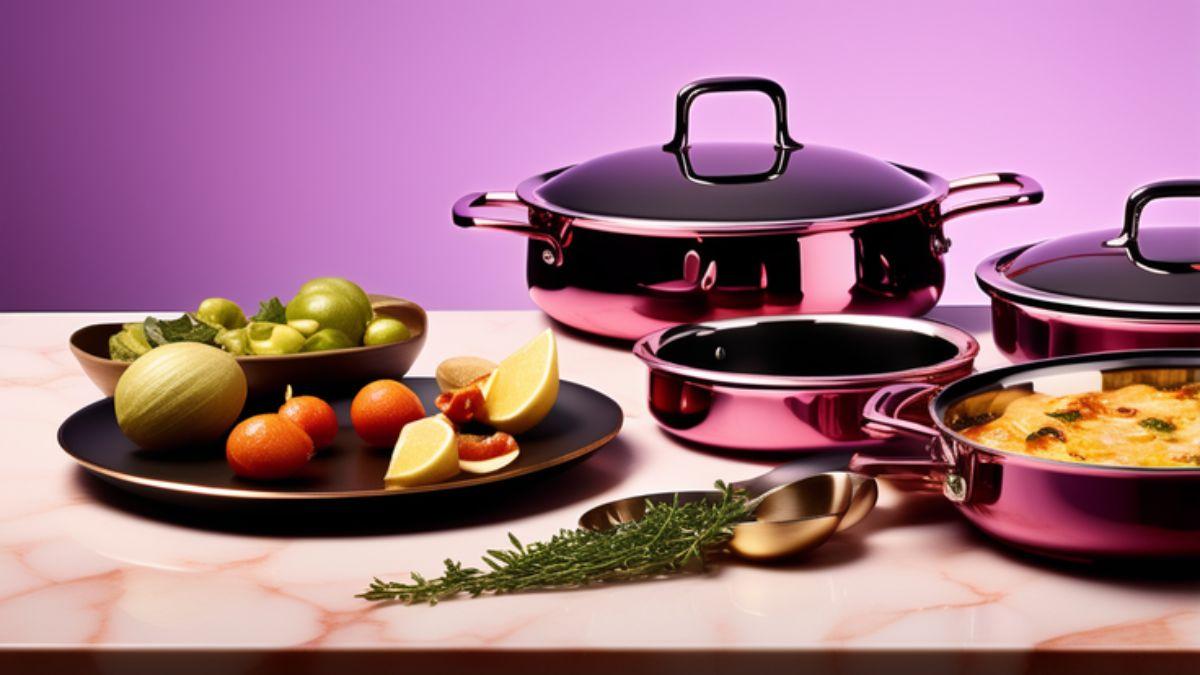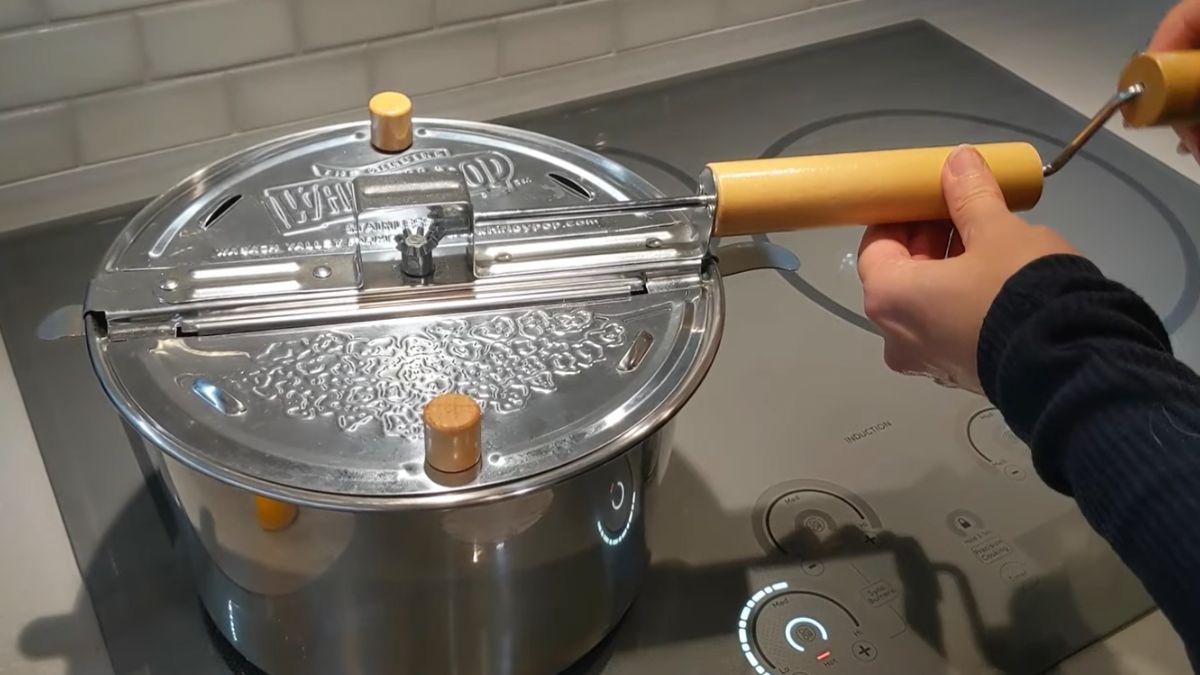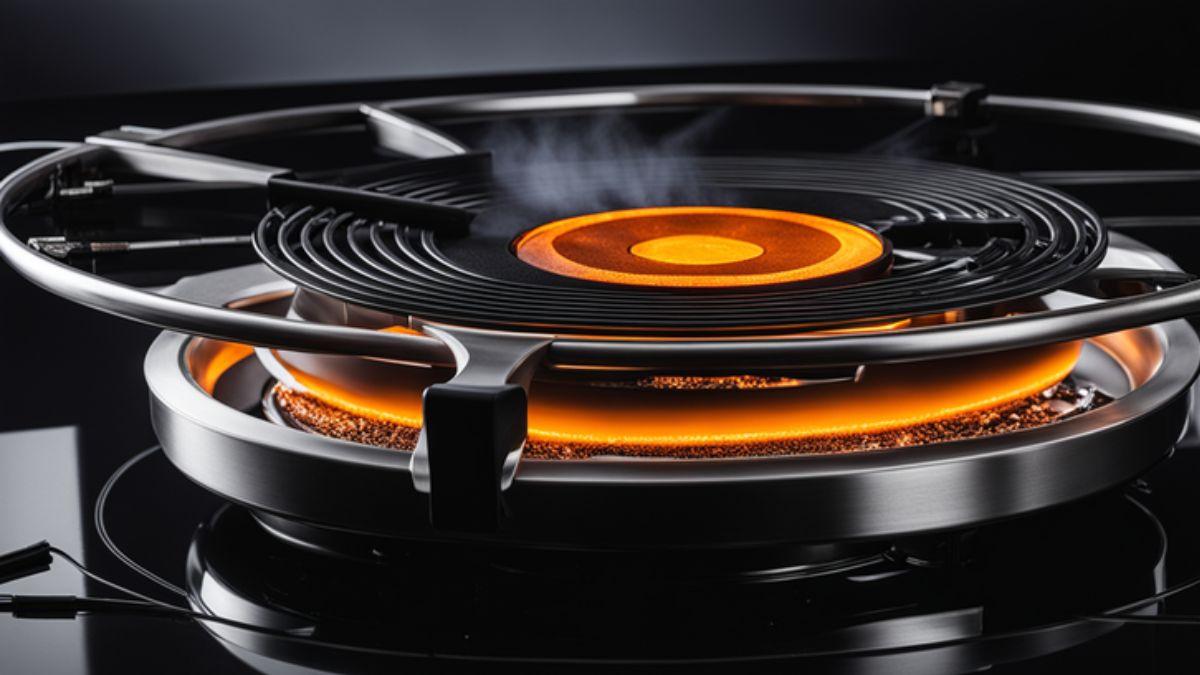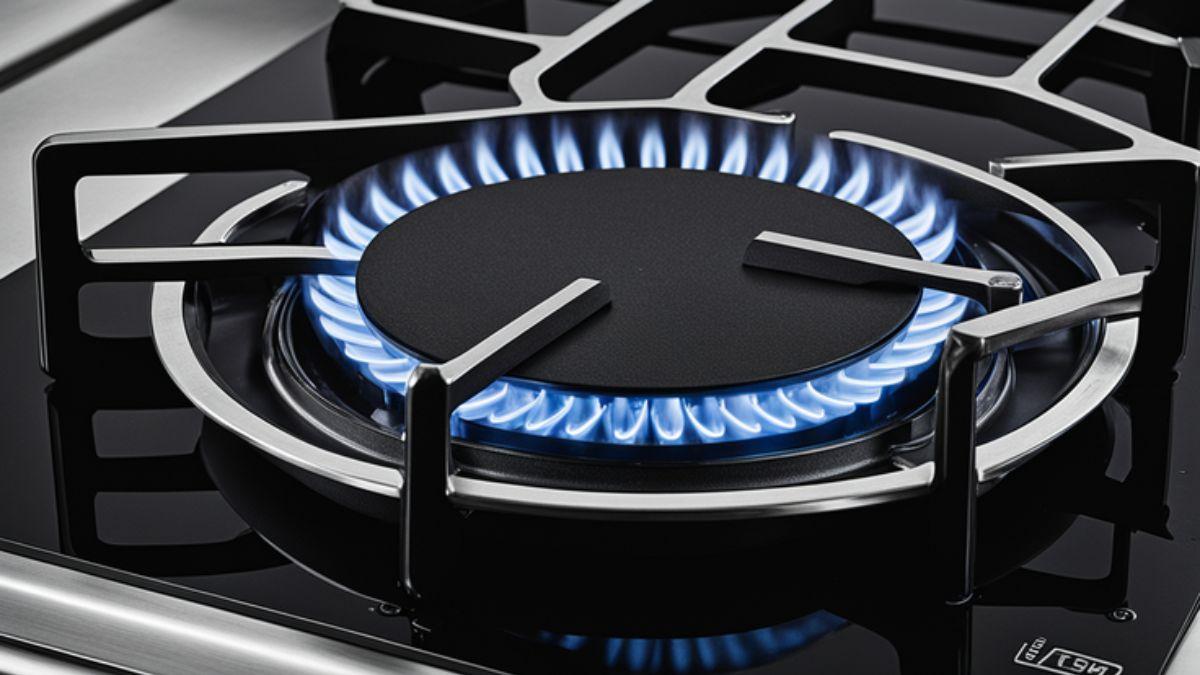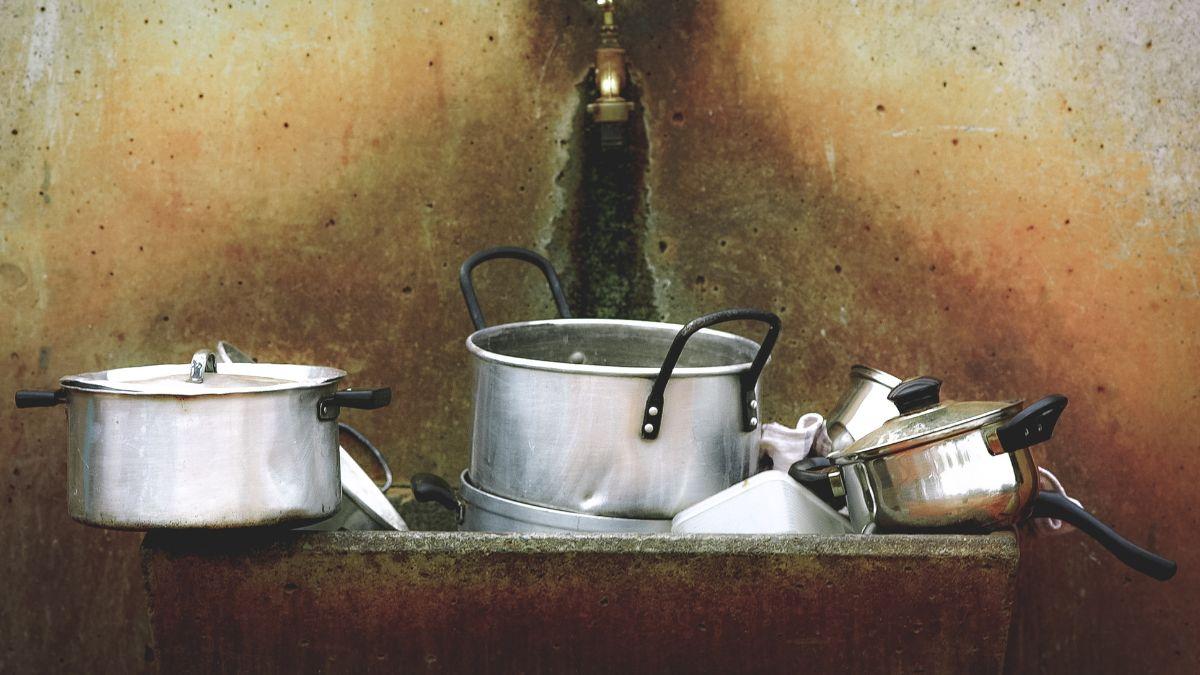
We may earn money or products from the companies mentioned in this post.
Aluminum cookware can pose health risks if it leaches into food during cooking. Overexposure to aluminum may lead to neurological problems or other ailments.
Aluminum cookware has become a staple in many kitchens due to its excellent heat conduction and affordability. Yet, increasing concerns about its safety have sparked debate and research. Continuous use of aluminum pots and pans at high temperatures can cause the metal to seep into food, potentially contributing to health issues over time.
While the body can handle small amounts of aluminum, consistent exposure might increase risks, especially for individuals with kidney impairments or those who consume large amounts of acidic foods that can dissolve the protective layer on aluminum utensils. To mitigate these risks, many consumers are turning to anodized aluminum or alternative cookware materials that do not leach metals, ensuring safer meal preparation.
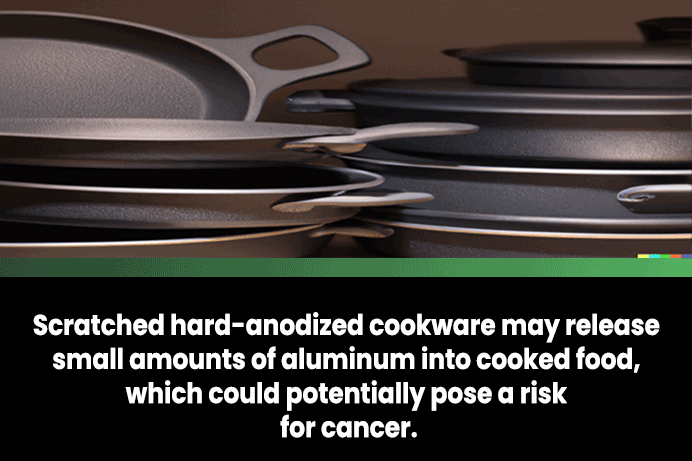
Credit: medium.com
Aluminum Cookware: A Popular Choice
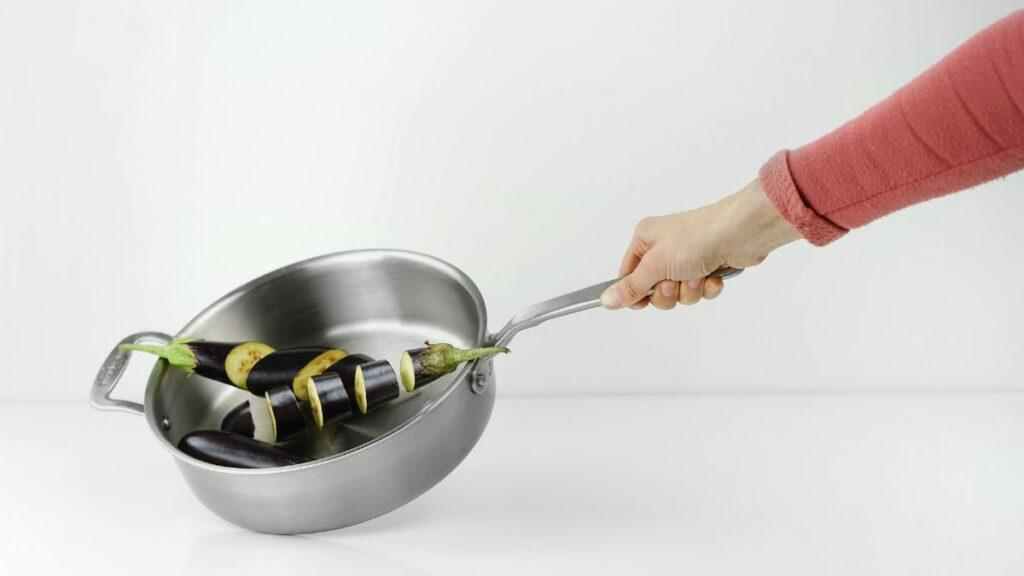
Aluminum cookware stands out in modern kitchens. This lightweight metal heats quickly. It is affordable. Cooks love it for its even cooking. But, is aluminum safe in cookware?
Widespread Use In Kitchens
Aluminum pots and pans dominate kitchen shelves. Home cooks favor them. Chefs in restaurants use them too. This cookware caters to all cooking styles. It’s versatile. Check any kitchen, aluminum cookware likely claims its space.
Comparing To Other Cookware Materials
| Cookware Material | Heat Conductivity | Price | Weight |
|---|---|---|---|
| Aluminum | Excellent | Low | Light |
| Stainless Steel | Good | Moderate | Heavy |
| Cast Iron | Good | Variable | Very Heavy |
| Copper | Best | High | Moderate |
In this table, let’s compare cookware materials. Look at heat conductivity. Notice the price. Think about how heavy they feel. Each material suits different needs. But aluminum offers a unique balance many find perfect.
Reed: Multiclad Vs Tri-Ply: Uncovering the Best Cookware!
Unearthing The Concerns: Aluminum Exposure Risks
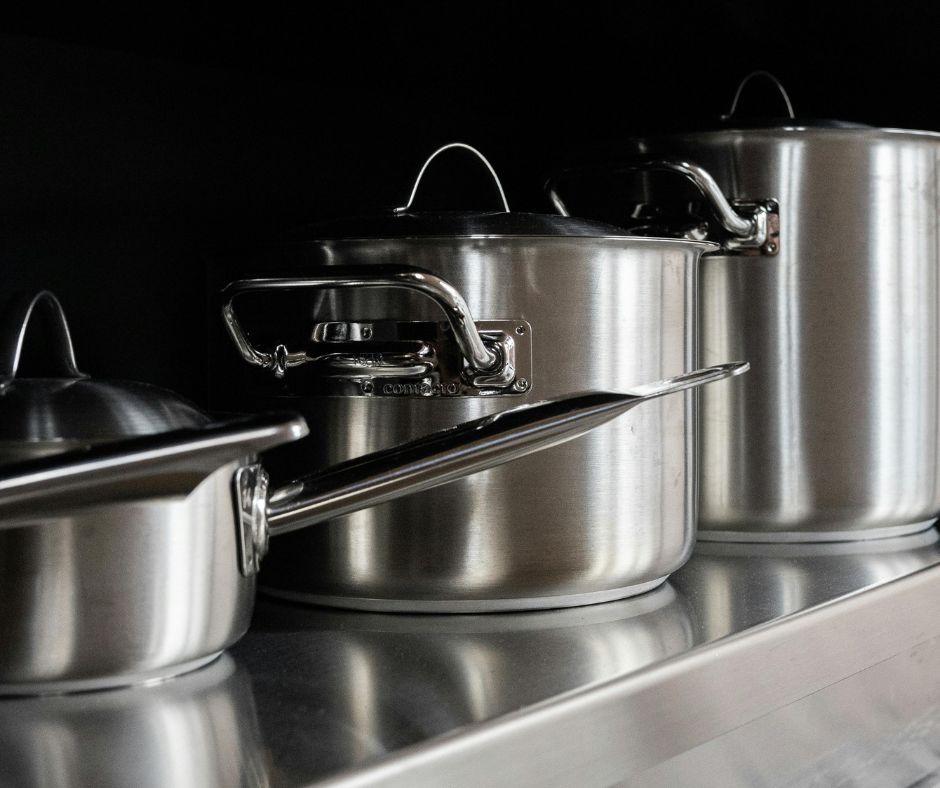
Many people use aluminum cookware every day. But there are some worries about its safety. Let’s dig deeper into these concerns.
Link To Health Issues
Using aluminum pots and pans might not be as safe as we think. When we cook, some aluminum can get into our food. Experts say too much aluminum might hurt our bodies. It is linked to some serious health problems:
- Brain diseases: Like Alzheimer’s and other memory issues.
- Bone problems: It can replace calcium, making bones weak.
- Kidney issues: High aluminum levels might make kidneys work harder.
Scientific Studies On Aluminum Toxicity
To understand these risks, scientists have done a lot of studies. Here’s what they found:
| Study | Findings |
|---|---|
| Study on long-term exposure | Links to nervous system damage |
| Research on animals | Shows behavior changes after eating aluminum |
| Analysis of human exposure | Connects to some diseases, like dementia |
These studies make us think more about using aluminum in our kitchens.
When Safety Melts Away: The Dangers Of High Heat
Imagine a favorite cooking pan, shiny and seemingly inert. Yet, under the extreme conditions of high heat, its composition can be far less stable than one might hope. This is particularly true for cookware made from aluminum. But why is this a cause for concern, and what happens to aluminum subjected to high temperatures during cooking?
How Cooking Temperatures Affect Aluminum
At moderate temperatures, aluminum cookware is robust and reliable. Its lightweight and excellent thermal conductivity make it a kitchen favorite. But when the dial turns up, the story takes a twist.
- Structural integrity may decline.
- Excessive heat can lead to a warped surface.
- Chemical stability is tested, risking contaminants.
Leaching Of Aluminum Into Food
The term ‘leaching’ reflects the unwanted migration of aluminum into food. High heat accelerates this:
| Heat Level | Leaching Risk |
|---|---|
| Low to Medium | Minimal concern |
| High | Increased concern |
Prolonged cooking and acidic foods can also amplify leaching, meaning the very methods you use to create delicious meals could pose a risk. Understanding these dynamics is crucial for your health and safety.
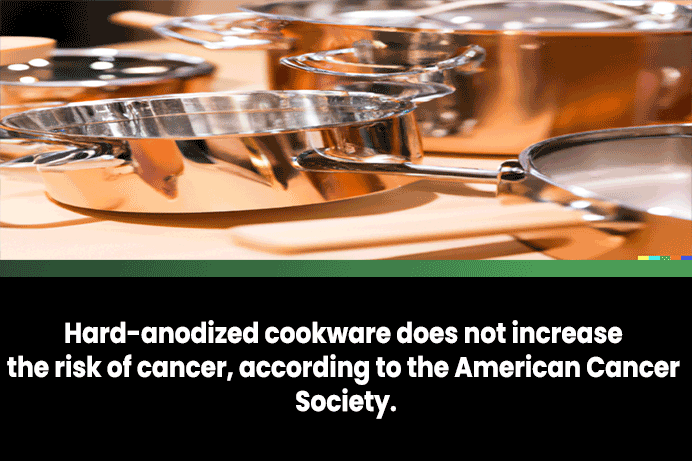
Credit: medium.com
Navigating Through Myths And Facts
When it comes to cooking, aluminum is a popular choice. Many kitchens sparkle with aluminum pots and pans. But behind the shine, concerns lurk about aluminum’s safety. It’s time to sift through the noise. Let’s explore the truth behind aluminum use in cookware.
Debunking Common Misconceptions
Myth: Cooking with aluminum pots is harmful.
Fact: Research shows that the amount of aluminum leaching into food is minimal. And it’s generally safe.
Myth: Aluminum cookware causes health issues.
Fact: No direct link exists between aluminum cookware and health problems, as per most studies.
Myth: Acidic foods should not touch aluminum.
Fact: While acidic foods can increase aluminum leaching, the levels remain very low.
The key is moderation. Using aluminum cookware occasionally doesn’t pose a significant risk. Stainless steel or glass options can be used for daily cooking if concerned.
Recognized Safe Levels Of Aluminum
The World Health Organization (WHO) has guidelines on aluminum intake. For adults, it’s about 40 mg per kilogram of body weight per week. Let’s break it down:
- Average adult: Roughly 2400 mg of aluminum per week is safe.
- Standard aluminum exposure: Daily use of aluminum cookware exposes you to much less.
- Comparative intake: Most aluminum intake comes from food additives, not cookware.
Government bodies set these standards to ensure the safety of everyday items. Choosing high-quality aluminum products also matters.
| Item | Aluminum Exposure |
|---|---|
| Aluminum foil | Minimal |
| Anodized cookware | Negligible leaching |
| Processed foods | Higher due to additives |
Selecting the right items and knowing proper usage are key to managing aluminum exposure. Cook with confidence and knowledge with these facts in mind.
Reed: Anolon Vs All-Clad: Which Reigns Supreme in Cookware?
Making An Informed Choice: Alternatives To Aluminum
People are choosing cookware that is safe and healthy. Aluminum pots and pans have been popular. Yet, some worry about their safety. This guide helps find other cookware options.
Investing In Safer Materials
Ceramic, stainless steel, and cast iron are safer materials. They do not have the worries that come with aluminum. Buying these means long-term health benefits.
Cookware made from these materials lasts a long time. They are worth the money. They also cook food well. Food gets cooked evenly and tastes better.
Tips For Selecting Non-aluminum Cookware
- Check labels: Look for “aluminum-free”.
- Touch and feel: Quality materials have a solid, heavy feel.
- Reviews help: Read what others say about the product.
- Think needs: Choose sizes and types that fit what you cook.
- Test safety: Pick cookware safe for your type of stove.
These tips help find the best cookware without aluminum. Safe cooking is important. Make sure to pick wisely.

Credit: www.sciencedirect.com
Taking Action: Reducing Aluminum Exposure In Cooking
We all want to stay healthy and enjoy our meals without worry. With rising concerns over aluminum exposure from cookware, it’s vital to be aware and take steps to minimize any potential risks. This section will guide you through effective strategies to reduce aluminum exposure while still enjoying the art of cooking.
Reed: Why is Saladmaster So Expensive?: Unveiling the Value
Best Practices For Cooking With Aluminum
Aluminum cookware is popular due to its excellent heat conduction. To ensure safety, follow these practices:
- Avoid high-heat cooking: High temperatures can cause more aluminum to leach into food.
- Use coated cookware: Opt for anodized aluminum, which is treated to prevent leaching.
- Reserve for certain foods: Use aluminum pots and pans for boiling water or cooking less acidic dishes.
Steps For Minimizing Risks
A few simple steps can make a big difference:
- Store food properly: Once cooked, transfer food to glass or stainless steel containers.
- Regularly inspect cookware: Discard aluminum utensils with scratches or damages.
- Consider alternatives: Explore using cast iron, stainless steel, or ceramic cookware for peace of mind.
| Cookware Type | Usage | Notes |
|---|---|---|
| Anodized Aluminum | General Cooking | More durable and less likely to leach. |
| Stainless Steel | Versatile Use | Non-reactive and safe for various foods. |
| Cast Iron | High-Heat | Excellent for searing and baking. |
Frequently Asked Questions For Aluminum Dangers In Cookware
Is Aluminum Cookware Safe For Everyday Cooking?
How Does Aluminum Affect Our Health?
Can Aluminum Leach Into Food From Cookware?
What Are Safe Alternatives To Aluminum Cookware?
Conclusion
Understanding the potential health risks associated with aluminum cookware is vital. As consumers, prioritizing our well-being means choosing safer options for daily use. Embrace alternatives like stainless steel or ceramic to minimize exposure. Stay informed; safeguard your health. Make the switch to keep your kitchen rituals worry-free.



